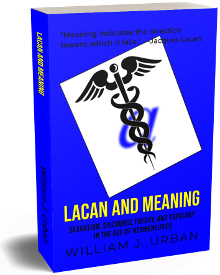Žižek on Multiculturalism,
Or Why Liberals Love a Good Tea Party
WILLIAM J. URBAN
Conclusion
What exactly would this entail? Let us consider the modern subject’s apparent dilemma. On the one hand, he can tolerate the Other only insofar as it is not the real, traumatic Other, but the aseptic Other who keeps a respectable distance and remains Other, not becoming too much like the subject. (Žižek 2001b: 69) The moment the real Other appears (say, of clitoridectomy or of women being compelled to wear a veil), the tolerance stops and here we see the subject overlooking the specific cultural jouissance the Other can take in even the most offensive of traditions. On the other hand, the modern liberal multiculturalist at times concedes too little to the particularity of the Other’s culture, tolerating (or is at least reluctant to condemn) the Other’s brutal violations of human rights. What is overlooked in this case is that the Other is split in itself and actually does manage a reflective distance toward its own practices. According to Žižek, the modern subject – caught between ‘too much’ and ‘not enough’ in relation to the Other – will never find a happy medium between the two, as he is stuck with false presuppositions. The solution is to overturn the very framework within which the subject operates. That is, the ‘liberal multiculturalist fails to notice…that each of the two cultures engaged in communication is caught in its own antagonism which has prevented it from fully “becoming itself” – and the only authentic communication is that of “solidarity in a common struggle.”‘ (Žižek 1999: 219–20) Bammer gets close to this notion at the end of her essay when she opts for Bhabha’s call for a ‘politics which is based on unequal, multiple and potentially antagonistic, political identities’ over Todorov’s universalism which, in Žižekian terms, suspends the Law on behalf of some higher or more fundamental interest. (Bammer 1995: 57) Žižek would commend her for accepting the antagonistic character of society, of acknowledging that there is no neutral position and that struggle is constitutive, but would criticize her for still remaining within a false opposition between universality and particular antagonisms. Rather, Žižek would insist that antagonism as such is inherent to universality itself, so that the ‘leftist political gesture par excellence… is thus to question the concrete existing universal order on behalf of its symptom... [which is]... the point of inherent exception/exclusion, the “abject,” of the concrete positive order, as the only point of true universality, as the point which belies the existing concrete universality.’ (Žižek 1997: 50). In a word, we are all immigrant workers, homeless, and permanently unemployed.
Žižek’s strategy that one must experience political alignment with the symptomatic points of contemporary global capitalism is radically opposed to the contemporary PC liberal attitude which perceives itself as having surpassed the confines of its own ethnicity. In sharp contrast to the contemporary multiculturalist perspective, Žižek’s tactic endeavors to see through the falsity of the former’s ostensibly ‘open’ stance since it actually functions within its own society as a narrow, elitist circle, clearly closed off and opposing itself to the people. Such elitism is discernable on the last page of Unlikely Utopia, that celebratory book on Canada’s achievement in tolerating cultural difference within its borders. Adams, barely concealing his scorn for the common people caught in their narrow ethnic confines who are thus unable to conclude as he confidently does, laments how he
‘can’t change... the fact that this optimism I express about multicultural Canada comes from a white guy born at the right time in a small town in rural Canada who lives in a leafy neighborhood in downtown Toronto. I can only hope that others will agree that my optimism is rooted in an honest examination of the data and a fair reading of our history as a people.’ (Adams 2007: 217–8)
For Žižek, the very fact that so many of us today experience our society as non-ideological is the surest indication that we are thoroughly immersed in ideology. As we saw, the dominant ideology today is multiculturalism and is perfectly tailored for global Capitalism. So to confront our true struggle, we must reject this ideological support while simultaneously doing so from the most abject position.
We will conclude with Žižek’s further thoughts on the parallel Badiou draws between American global domination and the late Roman Empire, the latter which was no less a multiculturalist global State in which multiple ethnic groups once thrived (united not by Capital but by the non-substantial link of the Roman legal order) than today’s Empire. Badiou tells us that Rome was undermined by Pauline Christianity and what Žižek endeavors to articulate is today’s equivalent gesture. (Žižek 1999: 211) So perhaps it is fitting we find Žižek’s most concisely worded strategy to undermine global Capital and its mobilization of contemporary multiculturalism as ideological support in one of his books on Christianity:
‘one should thoroughly reject the standard multiculturalist idea that, against ethnic intolerance, one should learn to respect and live with the Otherness of the Other, to develop a tolerance for different lifestyles, and so on – the way to fight ethnic hatred effectively is not through its immediate counterpart, ethnic tolerance; on the contrary, what we need is even more hatred, but proper political hatred: hatred directed at the common political enemy.’ (Žižek 2000: 11)
This call for intolerance and hatred – Žižek’s later work even advocates the use of terror – certainly brings to mind September 11, but those events nevertheless cannot be celebrated, having missed the true target.
Lacanian-themed puzzles

